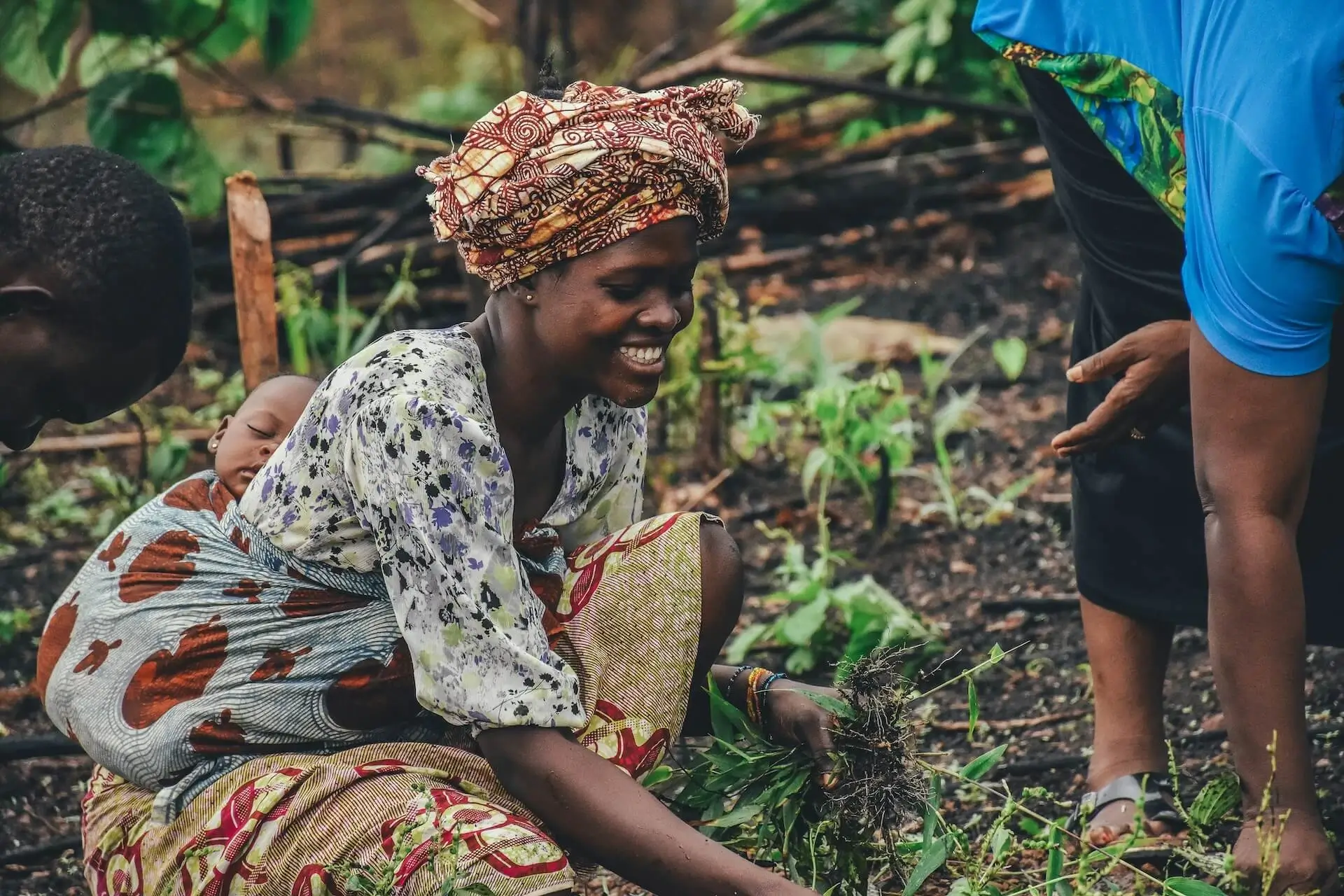Climate change is real.
We know because it’s communities like ours that it is hitting the hardest.
We face rising temperatures and increasing droughts, and these have an enormous impact upon our livelihoods.
Food insecurity is increasing because our agriculture is affected by climate change; key risks to our agriculture have included reduced crop productivity due to heat and drought stress, and increased pest damage. Our land is degrading and our crops struggle to grow.
Agriculture is the backbone of Tanzania and of communities like ours. Many livelihoods in the community depend upon it.

A lack of crops not only means more hunger (did you know that in the drought-prone sub-Saharan African countries, the number of undernourished people has increased by 45.6% since 2012?), it means less income and thus a big economic impact – how can farmers make money when there is not enough food to eat, never mind to sell?
We’re taking action.
Planting Trees
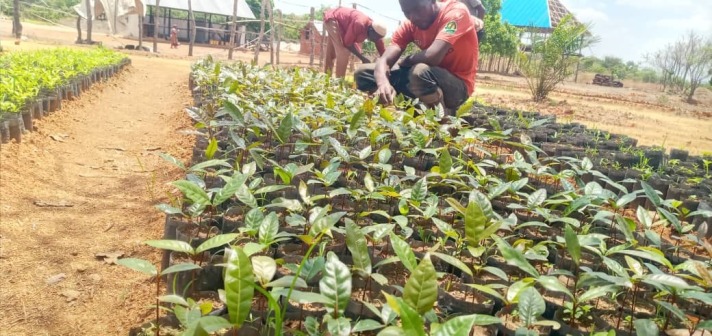
We know how vital trees are to our climate recovery and land restoration, so we are working on planting thousands of new trees in our area over the next couple of years.
Our land has degraded over the years, suffering from desertification – where we once grew bountiful crops, we have struggled to harvest any. This has been a result of various factors including climactic factors and human ones: the rise in temperature and droughts, bad agricultural practices including illegal logging and the “slash and burn” method.
In planting trees we can start to restore our land to make it healthier again, and so our crops will grow. They will help the ecosystems and increase soil biodiversity, making our land thrive and greener again. Furthermore, trees will be able to aid the climate crisis through offsetting carbon and producing more oxygen.
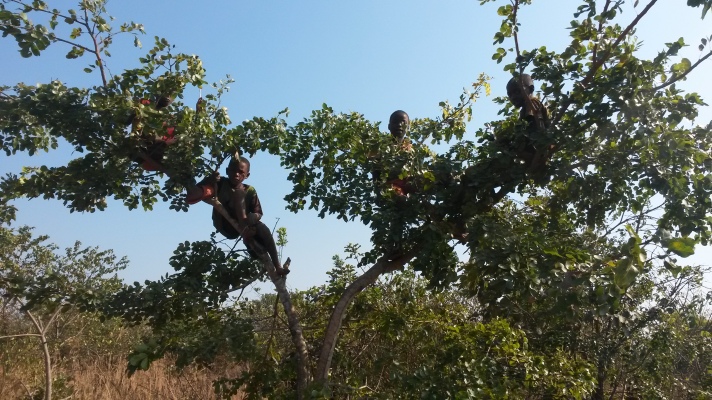
Beehives
Whilst the introduction of bees to our community was initially to increase food security and income generation, there are more benefits for our environment.
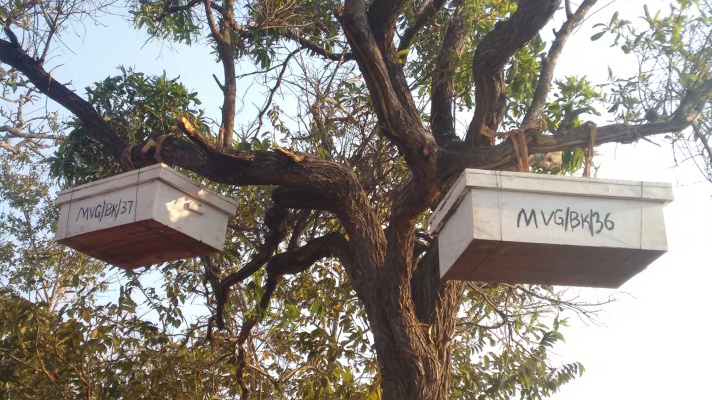
We hang the beehives in the trees which protect them from illegal logging – when people see the beehives, they respect that they are a vital source of income for someone and will leave the trees be. So, whilst our bees will help tackle hunger and poverty in our community, they can also support reforestation and conservation.
Bees also help the environment by contributing to biodiversity through pollinating flowering trees and plants.
Cleaner and more efficient energy resources
The people of our community have not had access to clean or efficient energy resources. We are off mains electricity and have relied on smoky kerosene lamps and inefficient wood-burning cooking stoves.
When the night comes, our day would have to come to an end as we would go home to retreat from the darkness – no more working to earn an income, no more studying for our children.
The kerosene lamps we would use to light our homes would fill the home with smoke that would make our children cough and their eyes water. It would be a similar situation with our cooking stoves – more smoke, more coughing, and more sore eyes – plus the fact that the stoves are so inefficient and burn so much wood, contributing to deforestation.
Firstly, we wanted to bring light to Zeze, so children can continue their studies at night, and people can continue working as the sun goes down to bring more of an income for their families. We have been doing this by introducing solar lights to the community – a brilliant energy resource with no air pollution and no ill-health effects!
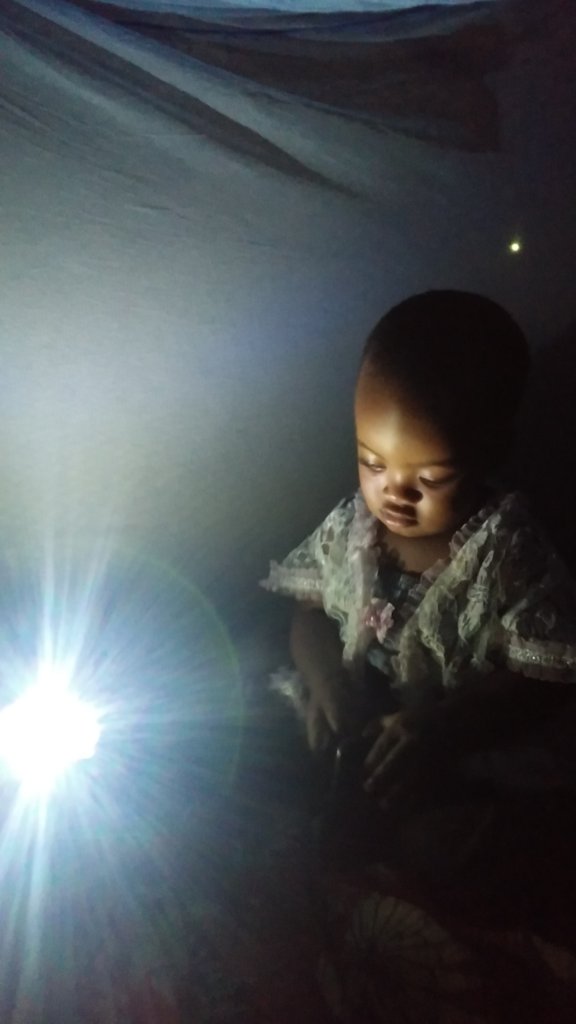
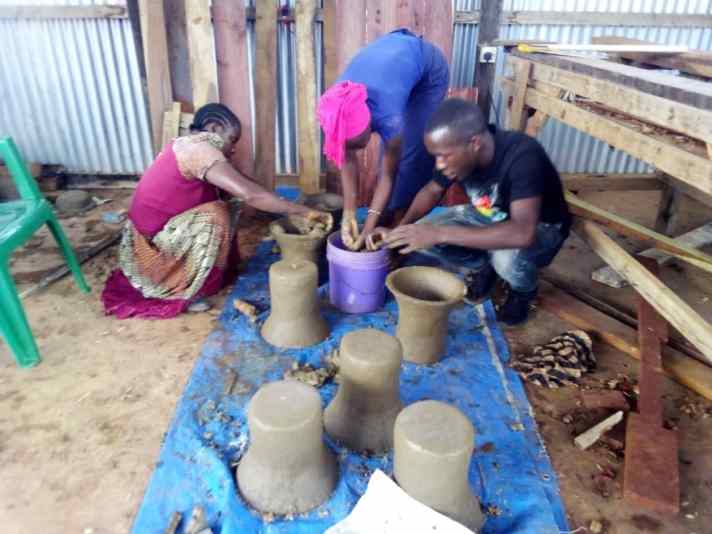
Secondly, we needed to change our cooking stoves. We started working with SNV who helped to train people in our community in how to make cleaner clay cooking stoves. These burn biomass fuels in a cleaner and much more efficient manner and require 50% less firewood!
Educating people so we can work collectively
Perhaps just as important as the actions we are taking is the education we are giving across our community. We can take action through planting trees, introducing bees and cleaner energy, but we can truly make a difference collectively as a community.
We educate people on the value of trees and encourage people to protect existing trees and plant new ones. We train people on better agricultural practices to not only help their agriculture, but so they can care for the environment, too. We also educate people on climate change and what they can do to take action.

We educate people on the value of trees and encourage people to protect existing trees and plant new ones. We train people on better agricultural practices to not only help their agriculture, but so they can care for the environment, too. We also educate people on climate change and what they can do to take action.



